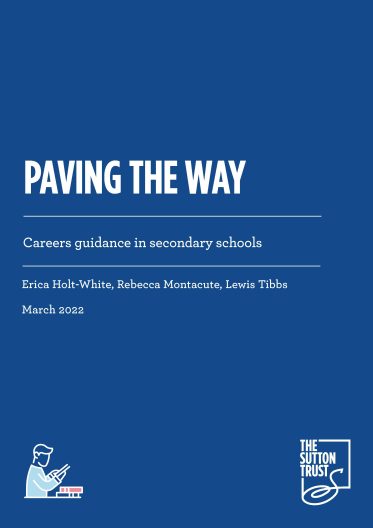Existing careers provision
- A wide range of career related activities are available in schools. The most common activities reported as taking place by senior leaders in English state schools include sessions with a careers adviser (85%), careers fairs or events (84%), and links to possible careers within curriculum lessons (80%).
- Classroom teachers in English state schools are less likely than senior leaders to say links to possible careers are being made within curriculum lessons, at 59% vs 80%, perhaps reflecting some ambitions for careers guidance not filtering down into classroom practice.
- Almost all state schools now have a Careers Leader, a role responsible for a school’s careers programme, with 95% of state school senior leaders reporting their school has such a role.
- 73% of state school headteachers said their school works with the government funded Career and Enterprise Company (CEC). However, just 48% of heads said their school was part of a CEC Careers Hub – designed to bring together schools, colleges, employers and apprenticeship providers in a local area.
- The majority (94%) of state school senior leaders are aware of the Gatsby Benchmarks, the current framework for careers guidance. However, awareness is much lower among classroom teachers in state schools (40%).
- Alongside differences in the range of activities available in schools reported by teachers, there are also differences in students’ self-reported access. Overall, 36% of students in the UK said they had not taken part in any careers related activities. State school pupils are more likely to report not having taken part (38%) compared to pupils at private schools (23%).
- Students’ self-reporting of career activities is higher for those in later year groups. For example, while only 7% of those in years 8-9 report learning about apprenticeships, this was 26% for year 13s. Similarly, while only 2% of those in years 8-9 had visited a university, 42% of year 13s have done so.
- But even for Year 13s, figures for many of these activities remain low, with for example just 17% having learnt about career opportunities in their local area, and just 30% having done work experience. Nearly half (46%) of 17- and 18-year olds (Year 13) say they have received a large amount of information on university routes during their education, compared to just 10% who say the same for apprenticeships.
- Around a third (36%) of secondary school students do not feel confident in their next steps in education and training, with only just over half (56%) feeling confident. More pupils in state secondary schools report not being confident in their next steps in education and training than in private schools (39% vs 29%).
Barriers to good quality provision
- Over three quarters of state school teachers (88%) felt that their teacher training didn’t prepare them to deliver careers information and guidance to students.
- Over a third (37%) of senior leaders think their school does not have adequate funding and resources to deliver careers advice and guidance.
- Just under a third (32%) of teachers in state schools report they don’t have enough funding to deliver good quality careers education and guidance, compared to just 6% saying the same in private schools. Just over half (51%) of teachers in state schools think there isn’t enough staff time to do so, compared to just 34% saying the same in private schools.
- Schools in more deprived areas are also less likely to have access to a specialist careers advisor, with 21% of teachers in the most deprived areas reporting non-specialists delivered personal guidance, compared to 14% in more affluent areas.
- 72% of teachers think the pandemic has negatively impacted their school’s ability to deliver careers education and guidance. This figure was 16 percentage points higher for teachers in state schools, at 75%, vs 59% in private schools.
Teachers’ views on improving careers guidance
- Almost half (47%) of state school teachers want to see additional funding for careers guidance, more than four times as many as in private schools (11%). State schools want to use additional funding to allow a member of staff to fully focus on careers guidance, with teachers also wanting to see better pay and recognition for the Careers Leader role in schools.
- Many senior leaders in English state schools also wanted to see additional visits from employers (47%) and more visits from apprenticeship providers (39%).
